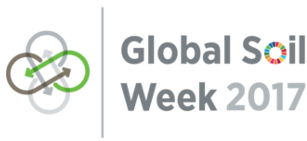Read the Global Soil Forum’s brochure about our thematic priorities.
Translating Global Goals into Realities: Local Knowledge for Change
The work of the IASS Global Soil Forum with an international network of partners envisions a world in which soil is sustainably managed and responsibly governed. This is a vision in which functioning ecosystems and the equitable distribution of resources predominate over the current reality of land degradation, enduring poverty and hunger.
Global governance for soil and land
The last five years have witnessed significant progress in reaching a global consensus on the protection of our soils and the governance of our land. To cite just two examples: by adopting the 2030 Agenda for Sustainable Development, governments have committed themselves to “strive to achieve a land degradation neutral world” by the year 2030. In 2012, members of the UN Committee on World Food Security adopted the ‘Voluntary Guidelines on the Responsible Governance of Tenure of Land’ (VGGT), which outline globally agreed principles for responsible land governance.
Engaged research – science with society
Translating global goals into realities and priorities requires a locally driven search process. As a research organization, we believe that knowledge is the key to supporting transformation processes in the areas of soil use and land governance towards more socially, ecologically and economically sustainable development pathways. In generating knowledge to support such processes, we must ensure that those who are in a position to use that knowledge are involved in its production right from the start. If done well, research can be empowering. The joint identification of problems and possible responses by researchers and marginalised communities can give voice to a perspective that normally goes unheard. But this requires engaged research, science with society.
Bridging Knowledge. Empowering Transformation.
An important function of transdisciplinary research is to provide usable knowledge for translating global and national policy processes into concrete actions. The Global Soil Forum together with its renowned international partners established an inclusive platform that offers a home to the diverse land- and soil-related communities. This cooperation has led to a better positioning of soils in the public perception and in important political processes.
The Global Soil Week: a multi-stakeholder platform and process
The Global Soil Week with its strong platform and process character is the main tool in this regard. It serves as hub for the various long-term cooperation processes of the Global Soil Forum and its partners, culminating in a large biennial event in Berlin.
The Global Soil Week seeks the input and commitment of stakeholders across professions and global regions. In the exchange of ideas among politicians, researchers, and civil society the challenges we face can be described in their full dimension and joint pathways to change can be discussed. Traction for the issues of soil and land is gained by jointly identifying important political or societal leverage points.
A future transformative agenda
To achieve various development objectives, a future transformative research agenda at global and national level will need to address the cross-cutting nature of soils and land. The main thematic priority beyond 2016 will be to engage in local dialogues on acknowledging this in the thematic reviews of the implementation of the 2030 Agenda by the United Nations. As local expertise is crucial to achieving a joint vision of global sustainable development, the Global Soil Week has been spawning sister events in various parts of the world.
The way in which topics are communicated will influence how issues are assessed and approached. Public outreach is an important means of featuring soil- and land-related issues from different angles. To this end, the Global Soil Forum also engages in participatory social media formats that allow for more inclusive debates. Social media, video, film, publications and exhibition formats are employed to link audiences to issues such as environmental degradation, land rights and food insecurity.

© Piero Chiussi/ Agentur StandArt
